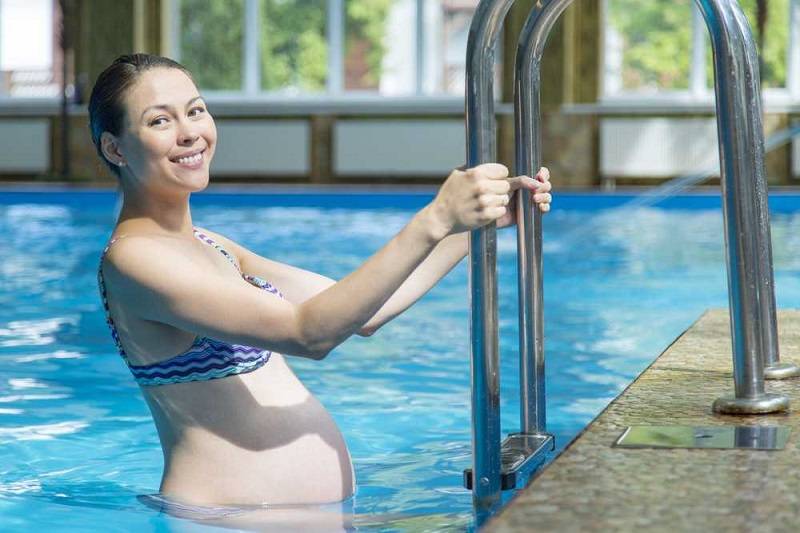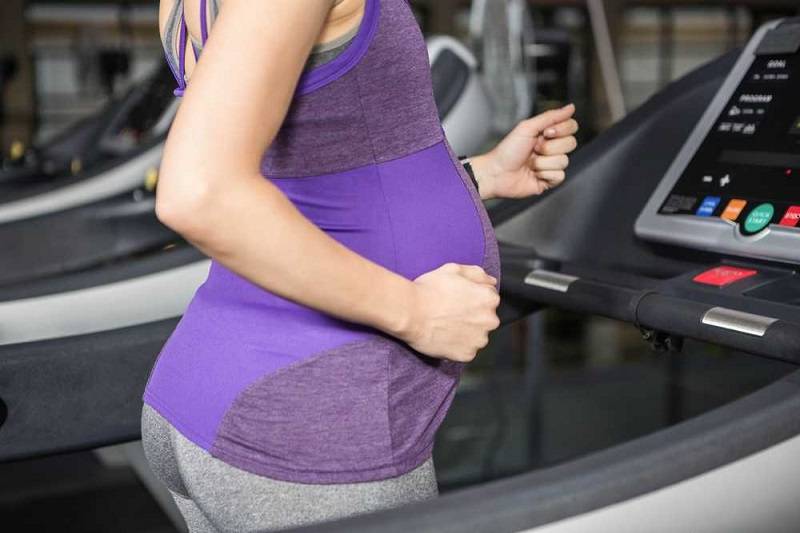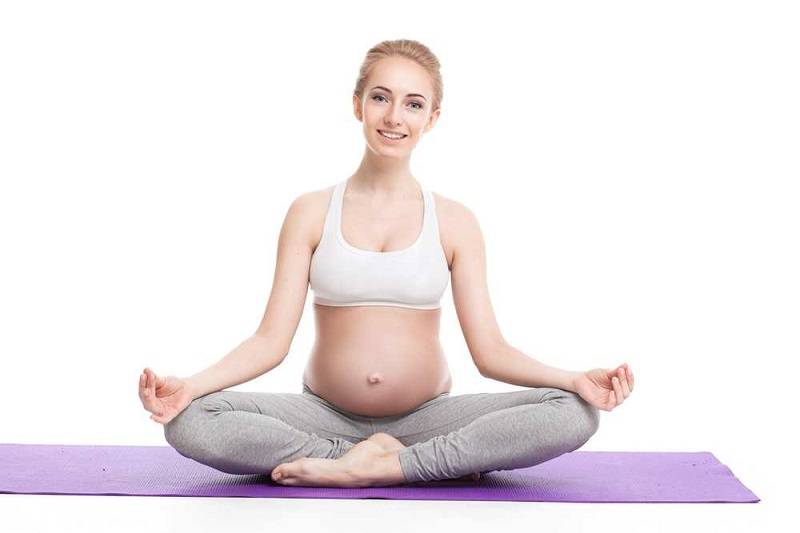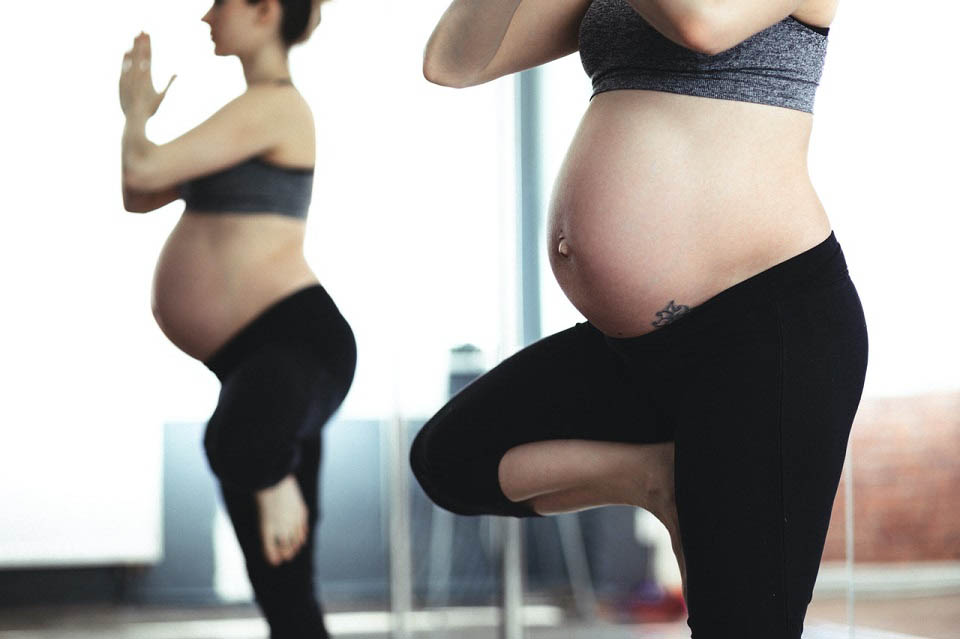6 Best Exercises During Pregnancy

Exercise is a major part of an everyday healthy life. Women often think that exercise during pregnancy may harm the baby. However, it is found that pregnant women, who regularly exercises before their pregnancy, suffer less pain during labour. Also the duration of labour for such women has been found to have been shorter compared to an average duration of labour. Before you start your exercise routine during pregnancy, it is a good idea to know which exercises during pregnancy are safe for the mother.
We have already listed how exercising during pregnancy has a lot of benefit for the mother. Please make sure that you don’t excessively exercise during your pregnancy since physical exertion during pregnancy has negative effects both on the expecting mother and her baby. Some of the recommended safe daily exercises for pregnant women are mentioned below.
Safe exercises during pregnancy
1. Walking
 Walking is a relatively risk-free exercise that can very easily be added to your daily routine as it can be done anywhere and requires no equipment other than a pair of sneakers and a comfortable change of clothes. It is an exercise that can and should be done during all 9 months of your pregnancy. Furthermore, by walking outside and breathing-in fresh air, both your body and mind will feel fresh. One can walk to the nearby park or on a treadmill, for 10-20 mins which may not be vigorous.
Walking is a relatively risk-free exercise that can very easily be added to your daily routine as it can be done anywhere and requires no equipment other than a pair of sneakers and a comfortable change of clothes. It is an exercise that can and should be done during all 9 months of your pregnancy. Furthermore, by walking outside and breathing-in fresh air, both your body and mind will feel fresh. One can walk to the nearby park or on a treadmill, for 10-20 mins which may not be vigorous.
2. Swimming
 Physicians and fitness experts both highly recommend swimming as a form of exercise for pregnant women. Swimming is best for giving strength to your abdominal muscles. It is the safest way of moving your body as being submerged in water greatly reduces the risk of injury or trauma to the abdomen. Additionally, swimming provides tremendous cardiovascular benefits as it is known to be the world’s only form of exercise which utilizes every single muscle of the body. Therefore, swimming helps trim extra weight, reduces swelling of the limbs, and alleviates lower back pain.
Physicians and fitness experts both highly recommend swimming as a form of exercise for pregnant women. Swimming is best for giving strength to your abdominal muscles. It is the safest way of moving your body as being submerged in water greatly reduces the risk of injury or trauma to the abdomen. Additionally, swimming provides tremendous cardiovascular benefits as it is known to be the world’s only form of exercise which utilizes every single muscle of the body. Therefore, swimming helps trim extra weight, reduces swelling of the limbs, and alleviates lower back pain.
3. Aerobics
 Partaking in aerobic exercise and water aerobics during pregnancy can strengthen the heart and increase overall fitness. It is recommended to do aerobics under the purview of an experienced instructor to ensure that the exercises are being conducted properly and safely. Aerobics may not be considered safe if high kicks and jumping etc. is involved as part of the aerobics exercise.
Partaking in aerobic exercise and water aerobics during pregnancy can strengthen the heart and increase overall fitness. It is recommended to do aerobics under the purview of an experienced instructor to ensure that the exercises are being conducted properly and safely. Aerobics may not be considered safe if high kicks and jumping etc. is involved as part of the aerobics exercise.
4. Running
 Running is considered safe during the first trimester and the second trimester of pregnancy only for those women who regularly ran prior to pregnancy. The intensity or speed of the run varies between individuals, and it is best to consult your healthcare provider as there are numerous factors, including overall health and trimester you are in etc., that can limit your running during pregnancy.
Running is considered safe during the first trimester and the second trimester of pregnancy only for those women who regularly ran prior to pregnancy. The intensity or speed of the run varies between individuals, and it is best to consult your healthcare provider as there are numerous factors, including overall health and trimester you are in etc., that can limit your running during pregnancy.
5. Dancing
 An easy way to stay healthy and fit while also enjoying yourself is to slip on (your flat, safe, and comfortable) dancing shoes. Nevertheless, try to stay on the ground and avoid any moves that could end in falls or injury.
An easy way to stay healthy and fit while also enjoying yourself is to slip on (your flat, safe, and comfortable) dancing shoes. Nevertheless, try to stay on the ground and avoid any moves that could end in falls or injury.
6. Yoga
 Yoga has been relaxing and beneficial in pregnancy. It is useful in strengthening the pelvic floor muscle and prevents the effects of pregnancy on women such as nausea , vomiting, bloating, leg cramps etc and may help in making the labor hassle free and shortens the duration of labour.
Yoga has been relaxing and beneficial in pregnancy. It is useful in strengthening the pelvic floor muscle and prevents the effects of pregnancy on women such as nausea , vomiting, bloating, leg cramps etc and may help in making the labor hassle free and shortens the duration of labour.
Normally, the yoga positions and duration which benefits in pregnancy varies in all the trimesters of pregnancy, however, women in first trimester of pregnancy is more at risk of miscarriages hence care and advice must be taken from your doctor . The positions of yoga that are beneficial and safe include asanas, yoga squat, matyasana etc.
Benefits of exercise during pregnancy
 Following are among the benefits to be gleaned from regular exercise during the course of pregnancy. However, despite the general safety of exercising during pregnancy, it is imperative to consult your healthcare provider prior to undertaking an exercise regimen.
Following are among the benefits to be gleaned from regular exercise during the course of pregnancy. However, despite the general safety of exercising during pregnancy, it is imperative to consult your healthcare provider prior to undertaking an exercise regimen.
1. Maintained weight gain
Weight gain in pregnancy is gradual and it gets massive by the end of the pregnancy which makes harder for the mother to reduce it post pregnancy. Weight reduction must not be followed immediately after pregnancy which is uncomfortable and unsafe for the mother.
However, its takes some effort for the new mother to reduce her baby weight gained during her pregnancy period. Regular exercising during pregnancy helps women maintain her weight throughout her pregnancy. Regular exercise during pregnancy also gives the pregnant mother’s body the flexibility and the strength to continue her workout even after the birth of the baby.
2. Reduction in stress
Pregnancy brings a lot of stress for the woman. The major reasons for stress during pregnancy include:
- The stress to continue house work while pregnant,
- Thoughts of a possibly painful labour experience
- Pregnancy mood swings etc.
Experts suggest that regularly exercises during pregnancy for 10 to 20 minutes helps relieve some stress off the pregnant woman’s body and her mind.
3. Body pain alleviation
Increase in weight gain, stretching of the muscles and hormonal changes may cause body aches such as leg cramps, lower back pain, headache etc.
4. Reduces risk of gestational diabetes
It decreases the risk of developing diabetes during pregnancy as exercising helps burning the extra fat a woman gains and stores around her body.
5. Increased strength during labour
Exercise improves muscular strength and helps in flexing the pelvic floor muscles thereby reducing labour pain and shorter childbirth.
When NOT to exercise during pregnancy
Typically, exercise is not recommended for the pregnant woman if she has:
- Anemia, heart disease, diabetes, lung disease, or high blood pressure.
- A very low BMI (i.e. BMI < 15) or very high BMI (i.e. BMI > 35) weight prior to pregnancy.
- Placental previa (low-lying placenta), a weakened cervix, or vaginal bleeding.
- Experienced a threatened miscarriage during the current pregnancy or have a history of past miscarriages.
- Expecting more than one child (twins, triplets, etc.)
However, the above mentioned may vary from case to case basis and there may be other conditions that may restrict a pregnant woman from exercising other than the ones mentioned here. Therefore, it is highly recommended to consult with your healthcare provider prior to beginning an exercise plan.
Exercises to avoid during pregnancy
 Exercises that should be avoided are those that can generally cause harm to an individual such as:
Exercises that should be avoided are those that can generally cause harm to an individual such as:
- Heavy weightlifting
- Contact sports such as hockey and football etc., and
- Skiing and horseback riding -activities which have a high risk of falling.
Additionally, exercises that involve lying on your back should be avoided in the third trimester so as to avoid hypotension and labored breathing due to the compression of veins by the uterus.


